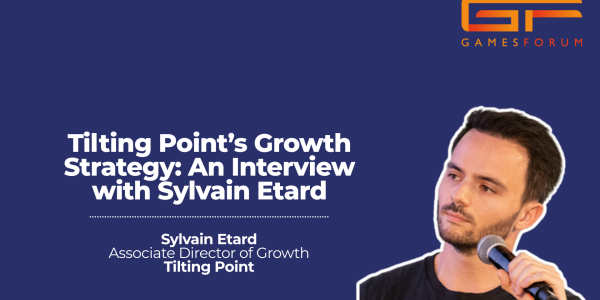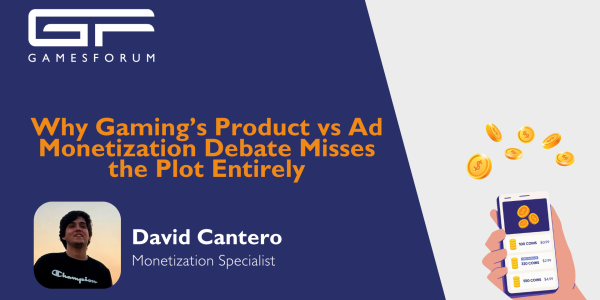What makes a UA manager great? - David Westerman Ferreira

In this piece, Bytro’s David Westerman Ferreira goes into what makes a fantastic UA manager
Written by David Westerman Ferreira, Senior Online Marketing Manager at Bytro
Marketing is arguably one of the toughest jobs in gaming. The number of variables that can affect how marketing efforts perform is incredibly massive and makes this job an absolute rollercoaster, month in, month out.
When you think about gaming marketing, the first position that usually comes to mind is the User Acquisition (UA) manager. This person is in charge of attracting individuals to download, install, and play the game, with the ultimate goal of profitably growing the user base. This definition is, however, very broad and vague and doesn’t accurately represent the sheer amount of expertise needed to execute a job like this.
To be at least functional at their work, a UA manager should have solid marketing expertise, including good knowledge of most acquisition channels, how attribution and forecasting work, and what main marketing KPIs to focus on. Speaking of KPIs, great analytical skills are needed to interpret those KPIs correctly and take action. A UA manager should also have a decent understanding of the game they are promoting and certainly demonstrate enough creativity to come up with engaging angles to advertise it. And let’s not forget about adaptability: we have had to rethink our whole marketing strategy for an entire operating system during the past 2 years, and we will have to do it again as soon as Google decides to do the same.
This quick overview only covers the absolute basics of operating as a UA manager in the marketing department of a gaming company. But most of them, or at least the successful ones, cover all these boxes. So what does a GREAT UA manager do to stand out above the rest?
#1 Impact on product
The UA manager is expected to be a vital member of the marketing team. However, a great UA manager's impact is not limited to that small bubble and usually ends up influencing decisions in completely different departments of the company.
UA managers are usually the first line of communication between the new player and the game. We are the ones who notice what makes someone interested in trying our title. A great UA manager will guarantee that these insights will be part of the game experience to ensure the player won’t be disappointed. Tutorials, narratives, or even certain aspects of the gameplay are just some examples that a UA manager can and should influence to make its core job easier and more effective.
#2 Skeptically curious
Not many industries are as dynamic as gaming. We haven’t figured out how to adapt to the last change, and something else that proves to be disruptive has been announced already.
Even though some of the changes are challenging, one could argue that a similar amount of opportunities have appeared at the same time, and great UA managers have been curious enough to embrace and make the most out of them. New channels, new features, new formats, new placements: the best are usually there to test them before anyone else.
Are all of these game-changing opportunities? Probably not. Most of them will be utter letdowns. But can you imagine the first UA managers who had the chance to test purchase or value optimization back in the day? Or someone who enjoyed TikTok Ads with virtually no competition?
Not all opportunities are opportunities though. And that’s where skepticism will come in handy. New advertising features with insanely high testing budgets? Click-through rates and IPMs too good to be true? Great UA managers will see right through that and stay away from fairy tales to avoid losses and disappointments.
#3 Great communicator with the art team
There’s something special about finding a hero creative (if you don’t happen to know what a hero creative is, it is usually a new and fresh creative concept that completely revitalizes your marketing performance). Firstly, you notice that the early metrics are great, but soon after the overall marketing starts to scale significantly, and finally, you can even see your impact on the top line. Good UA managers will certainly test, find and scale hero creatives, but great ones will operate as a bridge between marketing and art and will immediately communicate with the creative team to maximize their potential.
Speaking of sharing what is going well, another very underrated but also important practice is to detail what did not do well. It is very exciting to communicate what’s the fuel to the marketing success. Still, at the same time, every creative department, no matter how big or small, will always run into certain production limitations, and this flow of information allows them to prioritize ventures with a higher chance of success.
Not only that, great UA managers are always on the lookout for new concepts. If they spot another game’s creative concept that they haven’t tested yet, they’ll be the ones forwarding it to the creative team to produce their take on it.
#4 Resilient
If you are a UA manager yourself, how many times did you find a hero-creative and increased budget feeling like you were invincible and the sky was the limit? I do love that feeling as well, but unfortunately, these good streaks don’t last forever. The creative and their variants saturate, the metrics inevitably drop, and as soon as you know, the UA managers are back to square one.
But through these rollercoasters of performance, great UA managers will stay resilient.
And not just through a post-hero-creative period. Maybe it’s a tough month. Sometimes the villain is just the yearly seasonality. Summer is known for being a long and rough season. Black Friday is a nightmare for gaming UA managers. But great UA managers will push through all of this and keep grinding towards finding the next hero-creative, or simply preparing for the next favorable season.
Final thoughts
Is User Acquisition the hardest job in Gaming? After this overview, you might think it is. Maybe not. But in essence, the role of a Gaming UA Manager is certainly not just about acquiring users. It's about being a versatile, strategic, and resilient professional whose influence in a gaming company goes beyond simple marketing outcomes.











